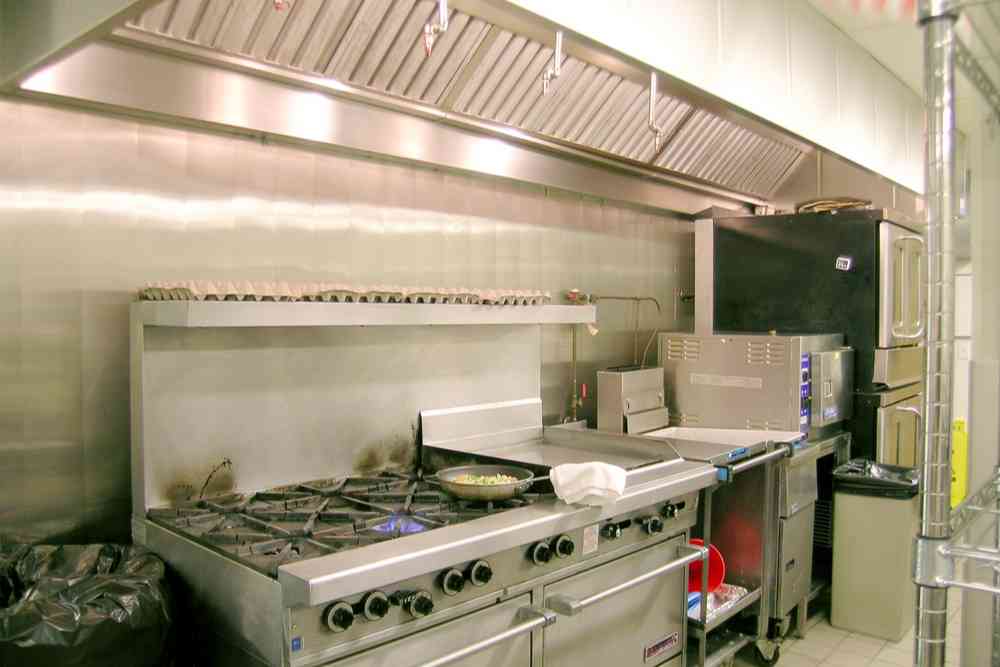Table of Contents
- Why Have Frequent Hood System Cleaning?
- The Importance of a Clean Hood System
- The Frequency of Hood System Cleaning
- The Process of Hood System Cleaning
- Frequently Asked Questions
- 1. Why is regular hood system cleaning necessary?
- 2. How often should a hood system be cleaned?
- 3. Can I clean the hood system myself?
- 4. What are the consequences of not cleaning the hood system regularly?
- 5. How can I find a reliable hood system cleaning service?
- Summary
Why Have Frequent Hood System Cleaning?

Keeping a commercial kitchen clean and safe is of utmost importance for any restaurant or food establishment. One crucial aspect of maintaining a clean kitchen is regular hood system cleaning. The hood system, which includes the exhaust hood, filters, and ductwork, plays a vital role in removing smoke, grease, and other airborne contaminants from the cooking area. Neglecting regular cleaning of the hood system can lead to a range of issues, including fire hazards, health risks, and decreased efficiency. In this article, we will explore the reasons why frequent hood system cleaning is essential and the benefits it brings to both the kitchen and the overall business.
The Importance of a Clean Hood System
A clean hood system is crucial for several reasons:
- Fire Prevention: Grease buildup in the hood system can become a significant fire hazard. The accumulation of grease in the exhaust hood, filters, and ductwork increases the risk of a fire breaking out. Grease is highly flammable, and if ignited, it can quickly spread throughout the kitchen and even the entire building. Regular cleaning of the hood system removes grease and reduces the risk of fire, ensuring the safety of both employees and customers.
- Health and Safety: A dirty hood system can lead to poor indoor air quality in the kitchen. When the hood system is not adequately cleaned, smoke, grease, and other contaminants can be recirculated back into the cooking area. This can result in unpleasant odors, respiratory issues, and even long-term health problems for the kitchen staff. Frequent hood system cleaning helps maintain a healthy and safe working environment by removing harmful pollutants from the air.
- Compliance with Regulations: Health and safety regulations require regular cleaning of hood systems in commercial kitchens. Failure to comply with these regulations can result in fines, penalties, and even closure of the establishment. By having frequent hood system cleaning, restaurant owners can ensure they meet the necessary standards and maintain a clean and compliant kitchen.
- Efficiency and Performance: A clean hood system operates more efficiently, leading to improved performance of the kitchen exhaust system. When the hood system is clogged with grease and debris, it hampers the airflow, reducing the effectiveness of smoke and odor removal. This can result in a hot and uncomfortable kitchen environment, decreased productivity, and increased energy costs. Regular cleaning of the hood system ensures optimal airflow, allowing the exhaust system to function at its best.
The Frequency of Hood System Cleaning
The frequency of hood system cleaning depends on various factors, including the type of cooking, volume of food preparation, and the specific regulations in place. However, as a general guideline, it is recommended to have the hood system professionally cleaned at least every three to six months. However, certain situations may require more frequent cleaning:
- Heavy Usage: Restaurants with high-volume cooking or establishments that operate 24/7 may need more frequent cleaning. The increased cooking activity leads to a higher accumulation of grease and requires more regular maintenance to prevent fire hazards and maintain optimal performance.
- Type of Cooking: Different cooking methods produce varying levels of grease and smoke. For example, establishments that primarily use deep fryers or charbroilers generate more grease and require more frequent cleaning compared to those that focus on baking or steaming.
- Local Regulations: Some local health departments or fire departments may have specific requirements regarding the frequency of hood system cleaning. It is essential to be aware of and comply with these regulations to avoid penalties and ensure the safety of the establishment.
The Process of Hood System Cleaning
Hood system cleaning is a specialized task that should be performed by trained professionals. The process typically involves the following steps:
- Inspection: The hood system is thoroughly inspected to assess the level of grease buildup and identify any potential issues or areas of concern.
- Preparation: The surrounding area is protected with plastic sheets or other coverings to prevent any mess or damage during the cleaning process.
- Grease Removal: The grease is scraped and removed from the exhaust hood, filters, and ductwork using specialized tools and cleaning agents. This step ensures the elimination of any flammable materials and improves the overall cleanliness of the system.
- Filter Cleaning/Replacement: The filters are either cleaned or replaced, depending on their condition. Clean filters are essential for maintaining proper airflow and preventing grease buildup.
- Ductwork Cleaning: The ductwork is thoroughly cleaned using high-pressure equipment to remove any remaining grease and debris. This step ensures that the entire system is free from obstructions and allows for optimal airflow.
- Final Inspection: Once the cleaning process is complete, a final inspection is conducted to ensure that the hood system is clean, compliant, and functioning correctly.
For reliable and professional hood cleaning services in Ontario, visit Ontario Hood Cleaning.
Frequently Asked Questions

1. Why is regular hood system cleaning necessary?
Regular hood system cleaning is necessary to prevent fire hazards, maintain a healthy working environment, comply with regulations, and ensure optimal performance of the kitchen exhaust system.
2. How often should a hood system be cleaned?
The frequency of hood system cleaning depends on factors such as cooking volume, type of cooking, and local regulations. As a general guideline, professional cleaning should be done at least every three to six months.
3. Can I clean the hood system myself?
Hood system cleaning is a specialized task that should be performed by trained professionals. They have the necessary equipment, knowledge, and expertise to ensure a thorough and safe cleaning process.
4. What are the consequences of not cleaning the hood system regularly?
Failure to clean the hood system regularly can lead to increased fire hazards, poor indoor air quality, health risks for kitchen staff, non-compliance with regulations, decreased efficiency, and higher energy costs.
5. How can I find a reliable hood system cleaning service?
When looking for a reliable hood system cleaning service, consider their experience, certifications, customer reviews, and adherence to industry standards. Asking for recommendations from other restaurant owners or industry professionals can also help in finding a reputable service provider.
Summary
Frequent hood system cleaning is essential for maintaining a safe, healthy, and compliant commercial kitchen. Regular cleaning prevents fire hazards, ensures optimal performance, and provides a clean working environment for kitchen staff. By understanding the importance of hood system cleaning and adhering to recommended cleaning frequencies, restaurant owners can protect their business, employees, and customers.
For reliable and professional hood cleaning services in Ontario, visit Ontario Hood Cleaning.
- hood cleaning
- kitchen exhaust cleaning
- restaurant hood cleaning
- Why Have Frequent Hood System Cleaning?






